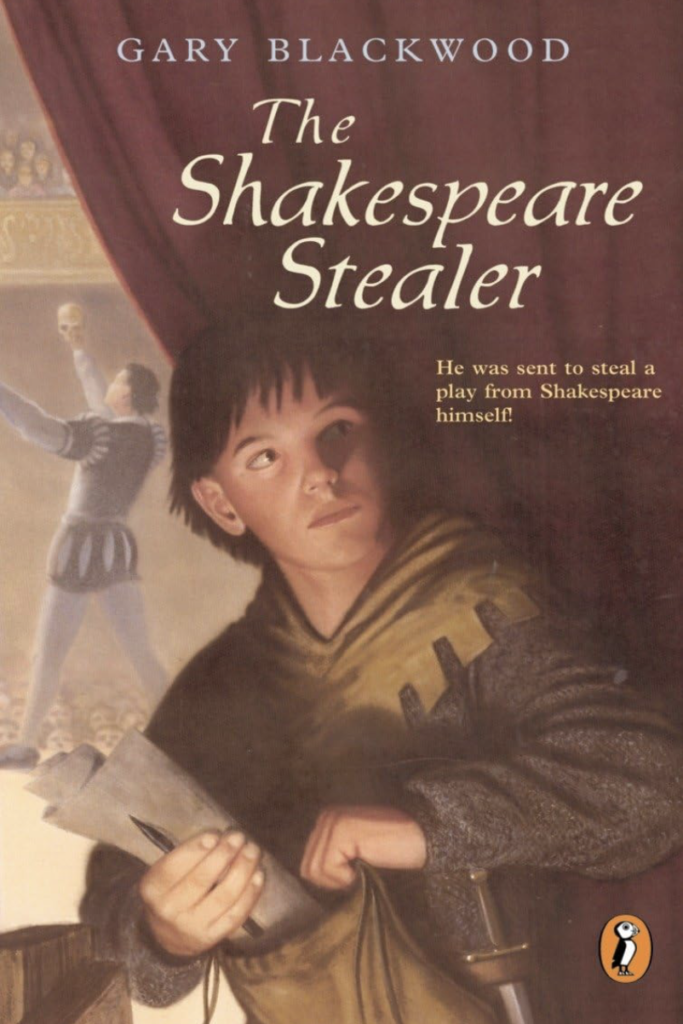“Mr. Shakespeare deserves better; he is a poet of quality, perhaps of genius, and if his work is to be appropriated, it ought to be done well.” – The Shakespeare Stealer, by Gary Blackwood

In a small country parish, a young orphan boy named Widge is placed in the home of a poor physician and preacher who needs a boy he can train to be his secretary. Dr. Bright has developed a cryptic form of shorthand that is indecipherable by any other than himself and his apprentice. Once Widge becomes proficient at the shorthand, Dr. Bright sends him out on Sundays to record the sermons of other preachers, ostensibly for posterity. In reality, Dr. Bright is stealing the sermons of others and passing them off as his own.
Widge’s life is simple. He is warm enough and fed decently. He is permitted no friends and is given no real love, but his situation is superior to most of the other orphans he knows.
One day, a dark stranger arrives and interviews Widge carefully. At the end of his inquiries and tests, the stranger pays Dr. Bright £10 for the transfer of Widge’s apprenticeship to his own master, Simon Bass. Widge soon discovers that Mr. Bass wants him to steal William Shakespeare’s new play, Hamlet.
There is a lot to enjoy and appreciate about this story, especially for lovers of theater and Shakespeare. Widge goes on a journey of self-discovery and the story ends pretty well.
The story starts with the classic YA trope, “I thought things were bad, but I had no idea how bad they could become.” In this story, the First Person account starts that way, but I never figured out when we were switching from “things are bad” to the happy resolution of the ending. If it is there, I missed it. Omitting that, The Shakespeare Stealer was a delightful adventure that I would happily go on again.